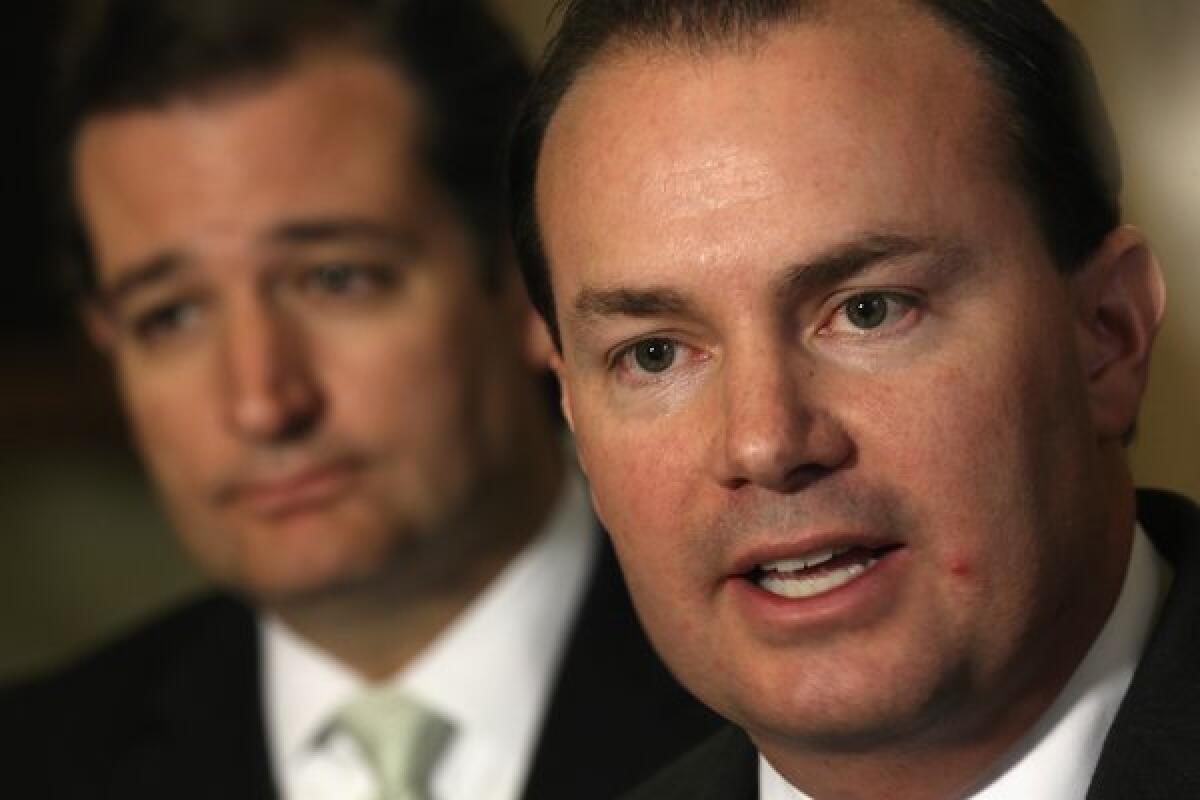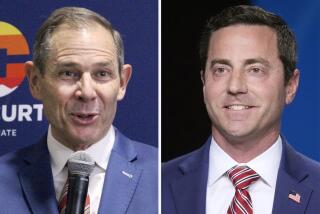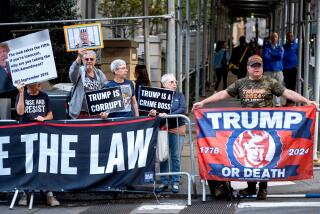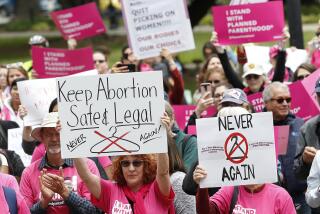Sinking Utah poll numbers show political toll of government shutdown

There is red and there is red. As in fire engine-ruby-crimson-blood-cardinal red.
Politically speaking, Utah falls into the latter category.
It has been nearly half a century since the state voted Democratic in a presidential election. President Obama received a wincingly small 25% of the vote in Utah in 2012, his worst performance in the country. That was down from a merely awful 35% in 2008.
The state’s congressional delegation is all Republican, save for Democrat Jim Matheson, who represents a Salt Lake City-area district and enjoys perennial membership in the national GOP’s Top Congressional Targets Club.
All of which make noteworthy a new poll out from Brigham Young University.
The survey found that freshman Republican Sen. Mike Lee, one of the seminal tea partyers and an architect of the current government shutdown, has plunged in popularity, with more than half of Utah voters now disapproving of his performance. In June, Lee’s favorability rating was 50%, compared with 40% in the latest poll.
As it happens, his chief ally in rolling down the gates on the federal government, Sen. Ted Cruz, has also fallen in the public’s esteem. A Gallup Poll out Thursday showed that people have grown more familiar with Cruz as a result of his shutdown crusade and also like him less: Of the more than 6 in 10 surveyed who had an opinion — up from 42% in June — just 26% viewed the Texas senator favorably. (The two played tag team last month during a 21-hour anti-Obama talkathon on the Senate floor).
Lee is not up for reelection in Utah until 2016, making a poll today about as relevant as an extended 3-year weather forecast. More meaningful was this finding: Nearly 6 in 10 of those surveyed said he should be more willing to compromise, even if that means funding the federal healthcare initiative that is Obama’s crowning legislative achievement and was, at least starting out, the casus belli of the 10-day-old shutdown.
Lee brushed aside the survey. “The only numbers I’m concerned with are the percentage of Utahns who are feeling the negative effects of Obamacare through lost jobs, wages, hours and healthcare,” he told the Salt Lake City Tribune.
Lee holds a special place in tea party history. He bagged the first big quarry in the insurgent movement’s march to office, ousting three-term Republican Sen. Robert F. Bennett at the state GOP’s May 2010 nominating convention. The rap on Bennett, the scion of one of the Mt. Rushmore families of Utah, was that he was too willing to reach across the aisle and work with Democrats.
Lee continues to enjoy strong popularity within the state’s tea party movement. Ninety percent of those who identified themselves as active tea partyers expressed support for the senator. But independents, moderate Republicans and Democrats all gave Lee poor marks.
That sentiment could augur well for a bipartisan group of activists circulating a petition that would end the system of caucuses and conventions Utah uses to nominate its candidates. The measure, throwing elections open to a statewide ballot, would broaden the voter pool and presumably dilute the power of the purist wing of each party.
“We’re the only state where a handful of people -- just a handful of people -- routinely choose candidates,” former Republican Gov. Mike Leavitt said in launching the drive, which aims to collect 102,000 signatures to qualify the measure for the November 2014 ballot.
It is, in short, the establishment’s way of slapping back at Lee and his tea party cohorts.
Twitter: @markzbarabak
More to Read
Sign up for Essential California
The most important California stories and recommendations in your inbox every morning.
You may occasionally receive promotional content from the Los Angeles Times.











